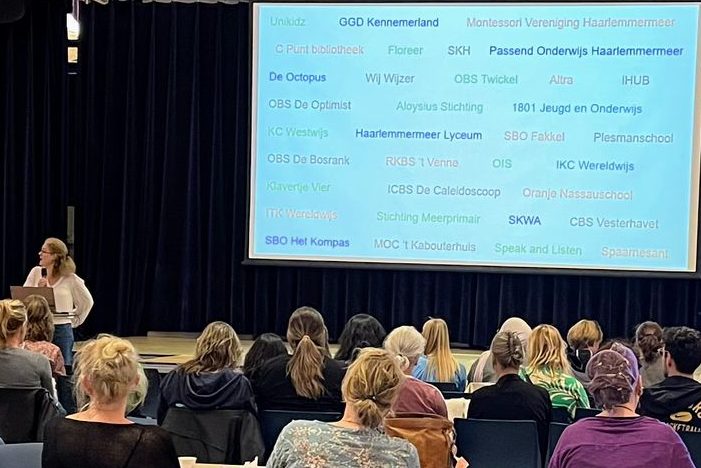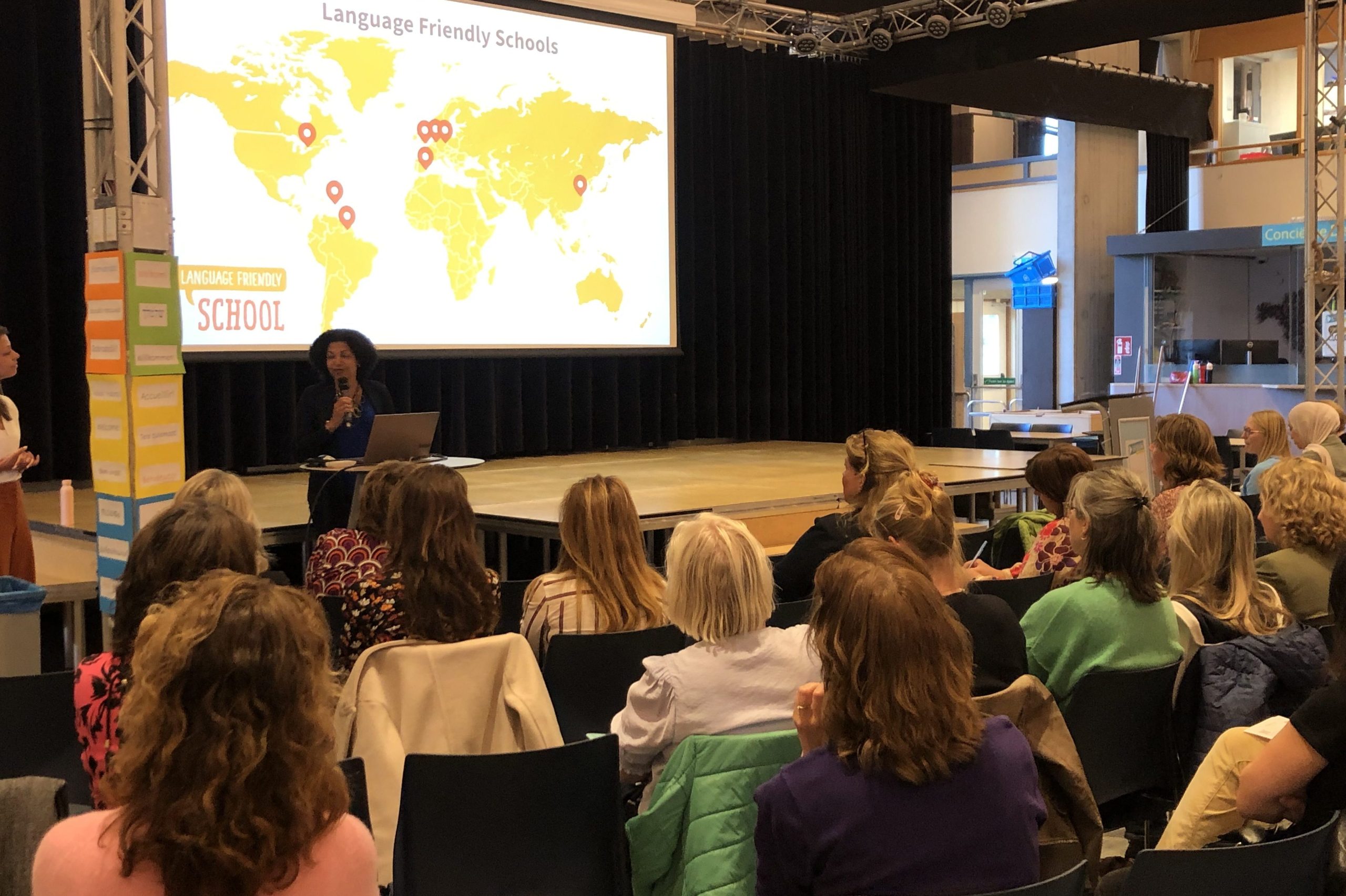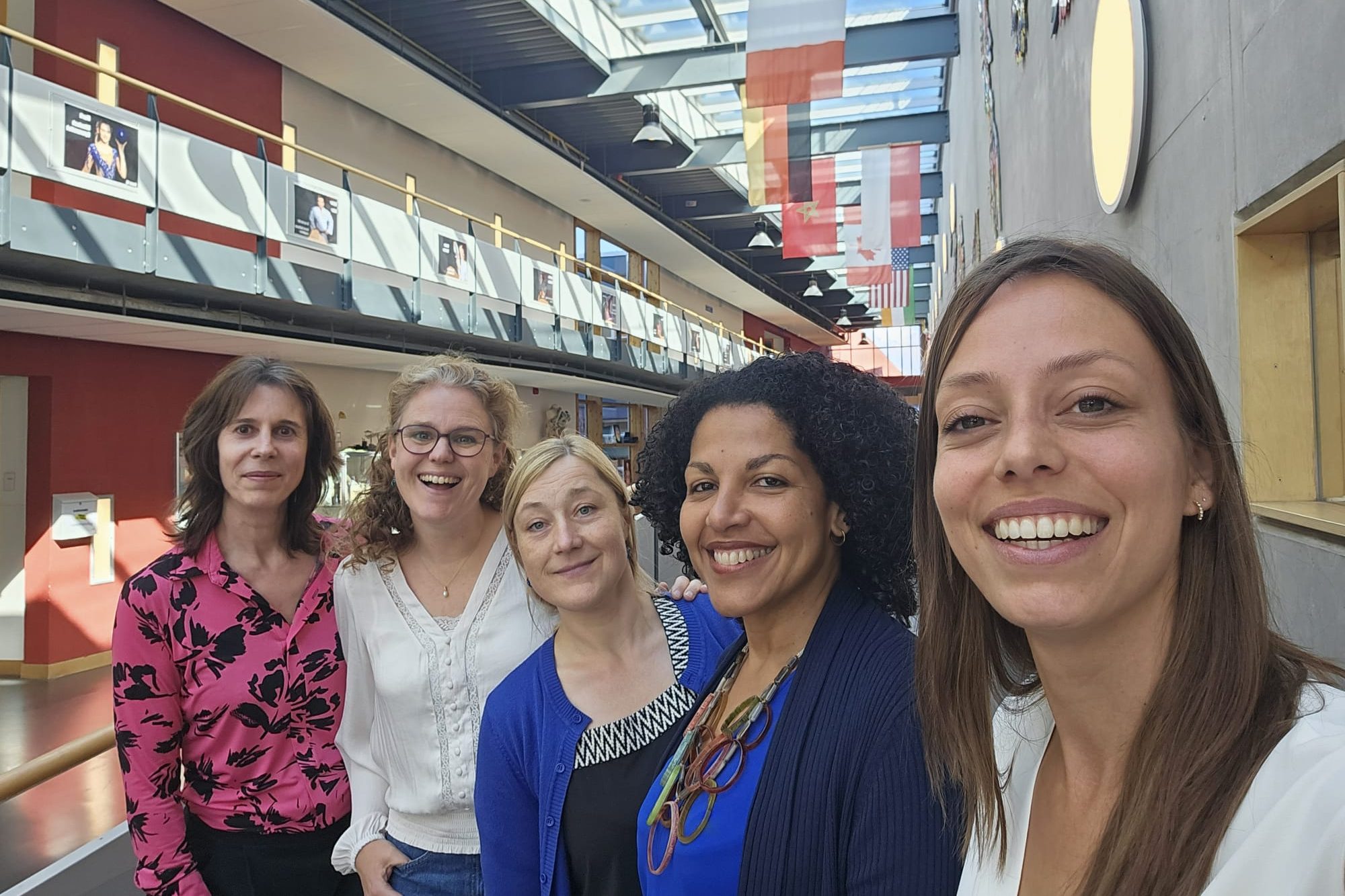
Supporting Multilingualism in Haarlemmermeer
Discover how OIS is sharing knowledge to support multilingualism and inclusivity through community workshops in the region. Read more in the article below!
By Manon Blaxland, PR & Communications
We emphasize the importance of using the mother tongue of children to enhance their learning experience!
As a school, we pride ourselves on being a language-friendly institution that welcomes all cultures and languages. With the support of the municipality, we are now extending our efforts by holding workshops for various organisations in Haarlemmermeer.
Workshop Overview
On 5 June, we held a workshop attended by 70 professionals from diverse fields including childcare, secondary education, libraries, and even swimming pool staff. This initiative is part of our collaboration with the Rutu Foundation for intercultural multilingual education and is supported by the municipality of Haarlemmermeer.
The Growing Multilingual Community
In the Netherlands, an increasing number of families do not speak Dutch as their (only) language at home. This includes newly arrived expats, knowledge migrants, refugees, and second or third-generation Dutch citizens with a migration background who are often multilingual. While this can pose challenges more cities and municipalities in the Netherlands are recognizing multilingualism as an enrichment and a unique opportunity to promote social involvement and inclusion.

Workshop Content and Insights
During the workshop, speakers Dr. Ellen-Rose Kambel and Hilda Heyde addressed persistent misconceptions about multilingualism. They shared the latest scientific insights into the development of multilingual children (aged 0-18 years) and discussed why multilingualism can be both a challenge and an enrichment. Our own OIS teachers Margit Tera and Marjolein Schenk provided practical tips and examples on how organizations can create a multilingual-friendly environment and find their own language-friendly path.
Feedback and Future Steps
The feedback from participants was overwhelmingly positive. Comments such as “An eye-opener” and “I will start implementing this tomorrow” highlighted the success of the workshop. Our next one is planned for 9 October 2024.
As a language-friendly school, we strive to be an example for our region by promoting home languages and inclusivity. We are extremely grateful to everyone involved and look forward to continuing our efforts to support multilingual children in our community. Together, we can make a difference in creating inclusive, supportive environments for all.

